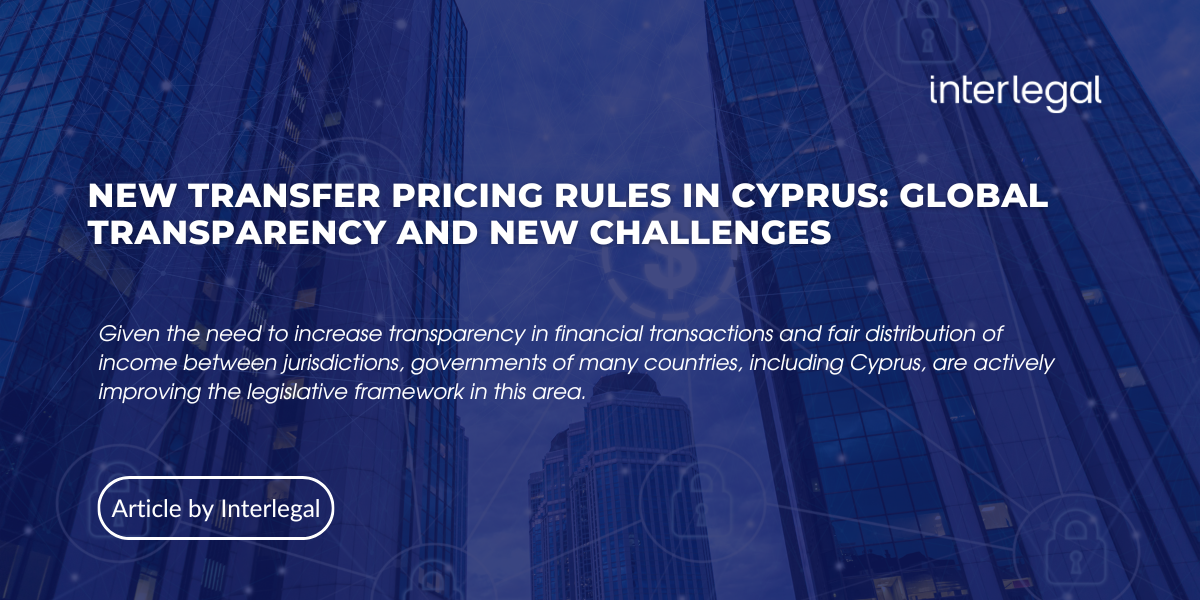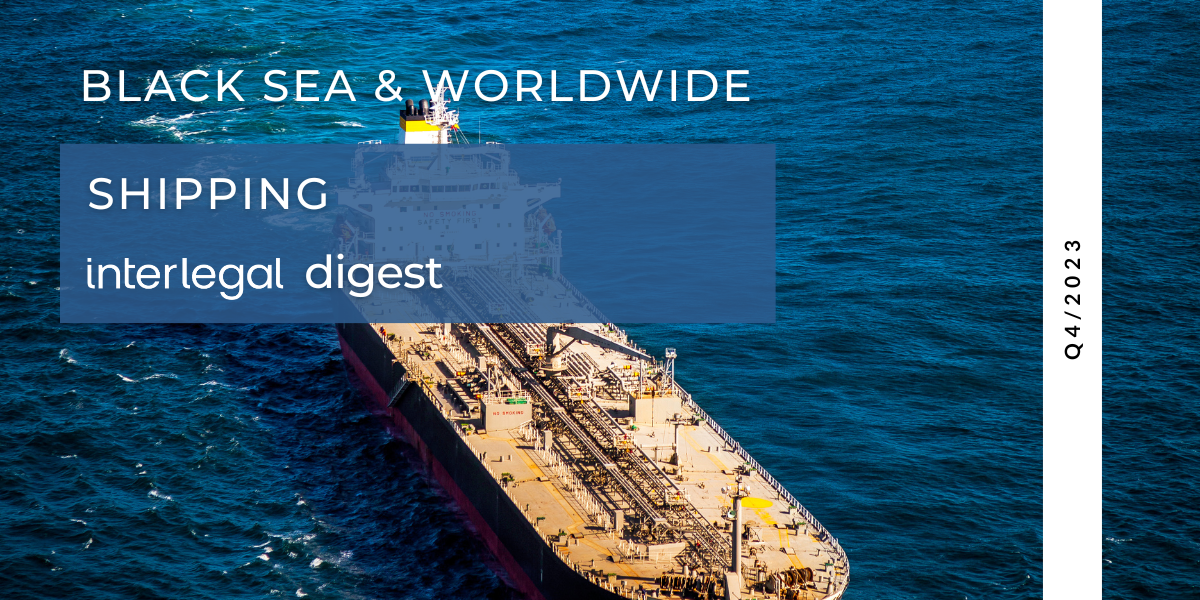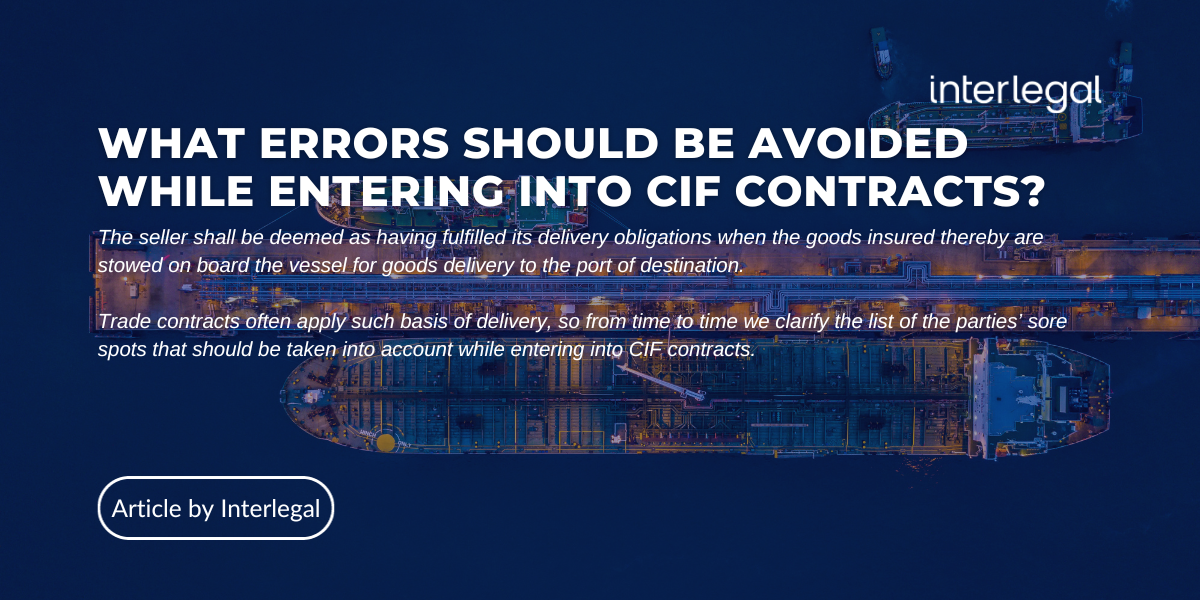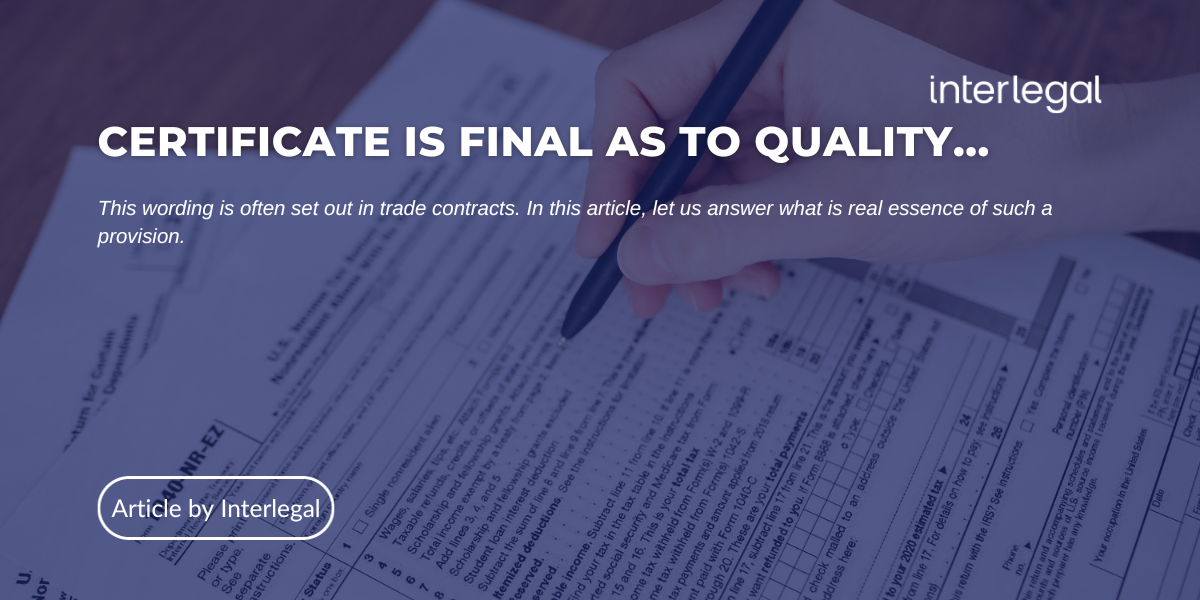Default by English law in commercial contract
2 August, 2024
14
.png)
Parties to the contracts in shipping industry often choose the law of England and Wales as their governing law.
English law attracts participants in shipping industry contracts due to its widespread use and authority. In fact, English law is the preferred governing law for business deals throughout the world, even those that have no geographical connection to the United Kingdom.
This is caused by the fact that English law is characterized by well-known, developed and authoritative judicial practice.
In this regard, it is important to understand what principles and rules govern contractual relations in this jurisdiction.
It is a general principle of English law that contracts shall be performed by the parties (pacta sunt servanda). English law doctrine provides that a contract can be completed in several ways: performance; expiry; avoidance; frustration; termination and cancellation, while the last two methods usually apply as a consequence of a breach of contract.
Brеach of contract under English law shall mean failure of one of the parties to a contract to fulfill its obligations or expression of their intention not to fulfill contractual obligations. In case of breach of contract, a party has the right to declare default to the other party and demand payment of damages.
Default shall mean failure to fulfill contractual obligations. Under a default procedure, a party may demand for reimbursement of all losses resulting from a default from the party that breached its obligations.
How to determine the default date?
Based on general rule stipulated by the Sale of Goods Act 1979 (Articles 50 and 51), damages to the innocent party in case of a breach of contract by the other party shall be calculated by the difference between the contract price and market value of the goods at the moment when the goods should have been delivered (accepted) or at the time of rejection to deliver (accept) the goods.
Mechanism for default clauses in GAFTA (Grain and Feed Trade Association) and FOSFA (Federation of Oilseeds and Fats Trade Associations) standard proformas governed by English law, is almost identical: the party declaring a default should file a corresponding notice of default and then, depending on the provisions of the contract and the applicable proforma, should recover losses for non-performance of the contract. Default, based on general approach in GAFTA and FOSFA proformas, can be declared by the innocent party at any time upon expiration of the contract/breach period, in which case the date of default shall be the next business day after the notice of default. However, some proformas, for example GAFTA 78 (contract of goods by rail), clearly limit the period for filing a notice of default.
Contradictions in determining the default date shall arise when the guilty party independently declares itself as default ahead of schedule. In this case, such a statement will be a statement on premature termination of the contract (anticipatory breach), and the date of such notice will not be deemed as the date of default and, accordingly, the date on which losses of the innocent party have been calculated. In this situation, as a general rule, the date of default will be the date of acceptance of such a statement.
How much time a party needs (and whether it needs) to accept it – that is a very controversial and ambiguous issue.
Jonathan v Agnew [1979] 1 ALL ER 883 fixed a well-known principle of English law that if, after breach of contract, the innocent party reasonably continues to hold the contract in force, damages may be assessed by reference to the price of the goods on the last day when the innocent party terminates the contract.
Tai Hing Cotton Mill Limited v Kamsing Knitting Factory [1979] A.C. 91 also resulted in the following decision: “If a party agrees to breach of the other party’s contractual obligations and accepts them, losses of the innocent party shall be assessed on the day of acceptance of breach by the second party. But if such breach was not accepted by the innocent party, losses shall be assessed at the end of delivery period under the contract.”
Based on our experience in English arbitration practice for commercial contracts governed by English law, we can argue that the date of default actually depends on many factors, including intention of the parties themselves. For example, in one of our recent cases, we could significantly reduce the default amount charged to our client by the counterparty due to the fact that we were able to clarify the default date declared by the counterparty.
Default clause and consequences of breach of contractual obligations
Standard GAFTA and FOSFA proforma contracts contain default clause, i.e. a clause defining the consequences of non-fulfillment of contractual obligations. If one of the parties fails to fulfill its obligations, the extent of its liability and the consequences of such violation shall be determined in accordance with terms of this clause.
Default clauses provide that the innocent party, in case of breach of contract by the counterparty, has the right to declare a default, namely:
• to submit a notice of default to the violator;
• to resell or to repurchase the arranged batch of the goods;
• to determine the price difference– default price;
• to demand reimbursement of price difference and additional damages.
When one party believes that the other party does not intend to fulfill its obligations and to reimburse losses, it may initiate GAFTA/FOSFA arbitration proceedings. It is important to note that for this purpose an appropriate arbitration clause between the parties is required.
Why GAFTA/FOSFA is the best arbitration for shipping industry
GAFTA/FOSFA arbitration is the preferred alternative commercial dispute resolution tool. It is distinguished by flexibility of the procedure, quick dispute resolution and relative cheapness of proceedings cost. GAFTA/FOSFA Arbitration Rules establish minimum formalities and delays for the parties, which facilitates access to fair and speedy resolution of disputes.
It should be noted that in order to submit a dispute to GAFTA or FOSFA arbitration, the parties do not have to be members of the relevant associations. However, the parties should agree thereon in advance. For example, if a contract is entered into on the basis of standard GAFTA/FOSFA proformas, such proformas already contain their own arbitration clauses, whereunder all disputes shall be resolved by the relevant arbitration courts.
No matter how tense the dispute may be during arbitration, the parties still have the right to resolve the dispute amicably. In such case, the arbitrators will require payment only for actually consumed time.
Interlegal experience shows that nearly 80% of disputes do not result in arbitration award, since the parties reach amicable settlement of the dispute.
In recent cases of Interlegal GAFTA arbitration, the Client’s counterparties were very reluctant to negotiate upon dispute settlement just till the moment of filing a claim. However, having received the claim, they promptly expressed their readiness for dialogue for avoidance of additional legal service costs, arbitration costs and accrued interests.
If the defendant defends its own position within arbitration proceedings and, under case consideration results, tribunal makes an award, while problems concerning its enforcement usually do not arise.
Enforcement procedure shall be carried out in accordance with the New York Convention on the Recognition and Enforcement of Foreign Arbitral Awards of 1958. Today, nearly 160 countries are parties to this Convention and apply common legislative standards for recognition of arbitral awards on their territory.


























































